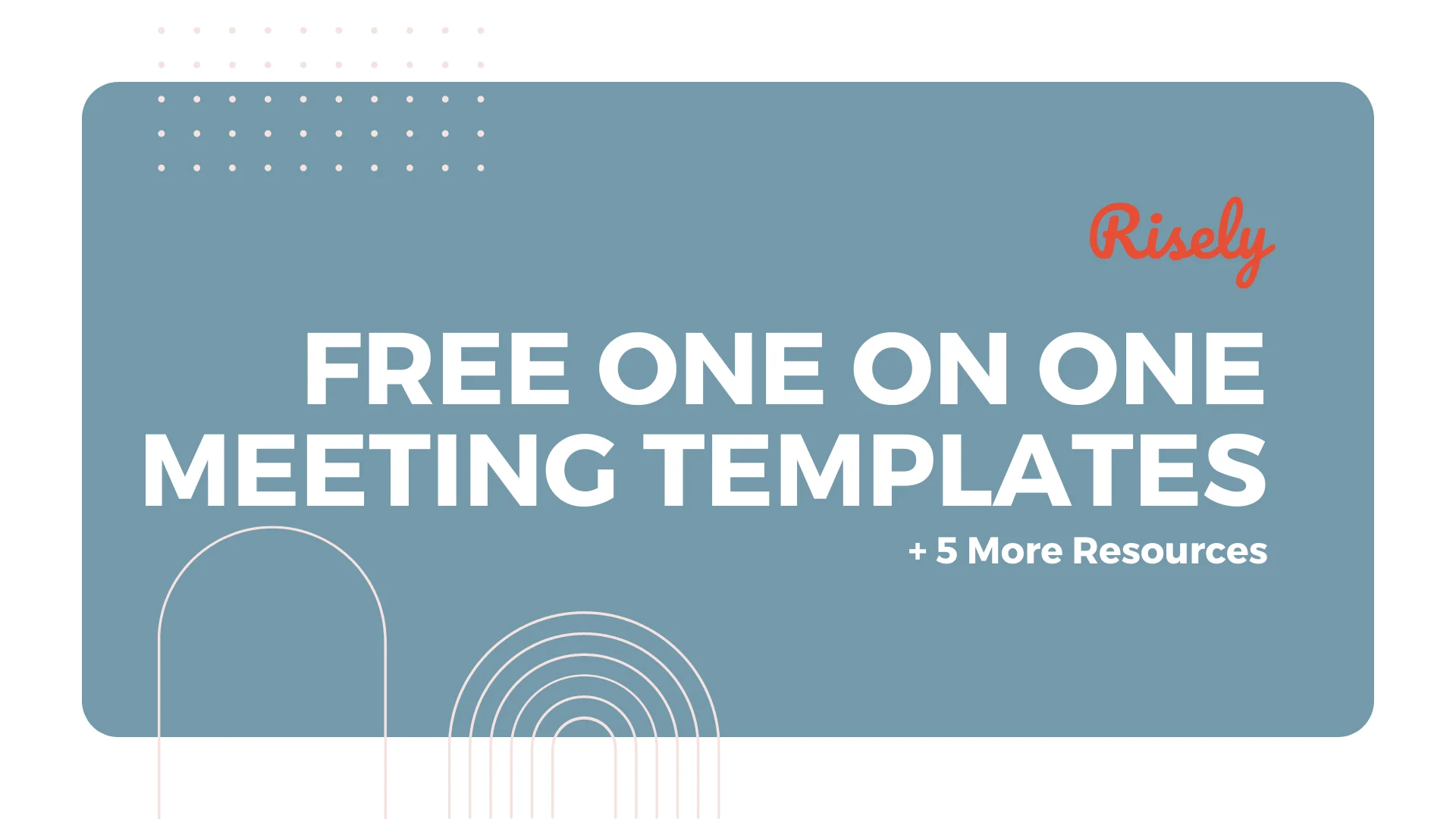Shivani Pande Uncovers the Making of a Manager
“Be a good person, but don’t always be a nice person.” That mantra guides Shivani Pande in her quest to create great people experiences for the Rocketium team. With over seven years of experience across industries and HR verticals, she has been pivotal in building things from the ground up and enabling success for managers across the organization. In a conversation with Shivani Pande today, let’s discover what good managers are made of.Building successful people managers
People management is an essential part of any organization’s success. For many of us, it just comes naturally. On the other hand, it’s an entirely new world that opens up with a promotion letter. You could be a great individual contributor in a finance team that’s now managing a team as the day turns! The feelings of excitement take charge, while those of anxiety lurk behind. Shivani makes this move simpler for her team with her efforts as a People Success Manager. To sum things up, there are three key areas where a manager needs some nudges to get moving:- Effective delegation
- Building the right culture in their team
- Conducting solid one-on-one meetings
Making the move smooth
People management is a marathon, not a sprint. Yet, often, the preparation matches the latter instead of the former. Training managers to be good at their roles is not as simple as putting them through a training routine. Instead, it’s about empowering them to stand independently for years. Often, managers move into their roles with little support and training from their organizations and superiors. The result? Confused managers and dissatisfied teams. Shivani creates a comprehensive mix of conversations and continuous learning to get her managers in shape.When we talk about people who have worked for 10 years… Certain things become part of their nature by working with many people and many different teams. When they get into their new manager roles, they start with implementing what they’ve learned from their own managers in the past. Shivani PandeWas this true for you, too? First-time managers seek role models from the leaders who have been there for them. Sometimes, this puts you on the right path; sometimes, it may not! This happens because the context and personalities that drive performance in any team differ. So, while your extroverted senior manager might bank on water cooler conversations for conflict resolution, the same approach seems a little too frank to you.
This is similar to how things went with me. For instance, my manager found value in running monthly one-on-ones in an informal setting. So I followed the same with others, took them out for a tea break to talk about work and other matters, asked for feedback, and corrected mismatched expectations. Shivani PandeTalking it out with new managers helps Shivani identify their thoughts on people management. The idea is not about critiquing and immediately putting them on the right path. Rather, it’s more about finding out what they are doing and what the organization can add to make them more effective. Enable managers, not enforce management practices.
Of course there’s a bit of fear as to how the manager will build career paths for the people they are managing. I have actually collated a few resources, including internal workshops, and documented some good reads to start with as the most approachable low-hanging fruits. I shared those while getting the new managers started. When they were done with all these, the second thing was sitting with them and understanding how they function as a manager. The first thing I asked was “How do you set the right expectations and goals for them?” A lot of what they shared with me was in the right direction. Shivani PandeFor Shivani, the form of intervention does not always take the same shape. In one instance, she remembers offering relevant courses and documentation to a team member who had just been promoted to a managerial role. In others, it could be a one-on-one conversation with their founder or help with better expectation-setting skills across the team.
Stepping back
Stepping back is an unexpected action for a manager but quite a helpful one. At the onset, managerial roles come with enhanced responsibilities. You are no longer just getting things done; you are making others do them, too. Shivani offers a helpful reminder here – a managerial role is your chance to exponentially increase your performance by enabling others. What it’s not? An opportunity to prove that you are a superhero.When you have been in an IC role for the longest time it is challenging to accept that I can trust this other person to get things done. So there’s this natural urge of taking everything up. This is a challenge I had to overcome myself and found others facing it too. I had trouble stepping back because I would feel I have always done it, I know it, and I would just get it done. But if I start working that way I will be paralyzing my team members because they would never get to test the water themselves. Shivani PandeTrust is an important factor in this equation. After all, while your team member may take 2 hours to finish a task that you can do in 30 minutes, the process is about them learning and doing it independently. The key here is to remember your role as an enabler of their success. Shivani remarks on this tendency of managers to just wrap things up themselves because it seems easier. The other way is just not worth the hassle.
The reason you become a manager is that a) you are mentoring others but also b) you do a lot more things and level up in your work. Shivani PandeIf this seems like you, too, here’s one thing to do: let go. Letting go of control and stepping back after carefully evaluating the impact will
- Teach your team members something new
- Free you from extra stress
Becoming more than a manager
A tough manager is a boring manager. A boring manager is a distant manager. Shivani recommends building a culture of friendship in your teams. The key idea is to make a level of safety and comfort that allows your relationship to go beyond professional. We are, of course, not speaking of meddling in personal affairs. Instead, it’s about knowing the person, not just the employee. Know who you are working with and what matters to them so that you can support them in a way that suits them.It makes them feel that someone is standing by me, and that’s all they need. I have been in situations where they just wanted to rant it out, and that’s alright. I am not going to judge them. That sort of reassurance and validation helps people a lot. Shivani PandeSecond, such a culture of openness allows you to freely share feedback. Sharing feedback, or even asking for it, can be contentious when either of the parties is not comfortable. However, providing that room to accept mistakes and be vulnerable is the key to success. In one instance, Shivani speaks of a team she helped overcome mismatched expectations. The organization was undergoing significant movements. A lot was happening at every front, and the employees obviously felt overwhelmed. After learning this with the help of a survey, Shivani set into action with the team manager.
Sometimes, we are able to identify who is feeling what. The best thing we have done is share the team member’s feelings with their manager. Of course, this includes the context and how actions should be taken on this, at times in subtle ways. Without the latter two, the team member’s trust would be breached. Shivani PandeFirst, she shared the insights with the team manager and explained what was happening and why. Context matters, so the idea is to highlight challenges while keeping the members safe from any bias that could unintentionally arise. After helping the manager spot the challenge, the next step is creating a way out. Second, she helped the managers fine-tune their skills. For example, instead of asking, “Are you not satisfied with your salary?” she asked them to reframe the question into, “If we are planning for a level up in your role, what do you think we can do differently? Have you thought about how you want to see your pay grow with the role? How do you think we can incentivize you better?” Keeping the idea the same but with a better presentation. This helped them clarify the specific issues and subtly create suitable solutions. In the end, Shivani concludes that while managers approach a situation with the right intent, they might need support in getting the actions right. Data agrees with this sentiment, as a Gartner survey discovered that 40% of managers with two years or less experience struggle to support their team. People management is a delicate balance; a tilt too heavy either way can put your team at risk.
Talking, and more talking
Words matter greatly in Shivani Pande’s world, which prioritizes one-on-one meetings and personal touchpoints in effective professional interpersonal relationships. For an organization that believes in over communicating, this just makes sense.What most have as a notion is that 1-1 is a performance discussion. We have it in our guidelines that during our monthly 1-1s we will talk about work also, but it’s not a performance review. Focusing solely on it shuts doors for understanding the real perspective of the team members’ feelings. We keep it natural by positioning it differently, making it a blend of professional and personal conversations that can help the manager in unblocking their team. Shivani PandeThe ideal one-on-one meeting is not a performance review; instead, it’s a catch-up with a team member that focuses on them. Of course, every person interacts differently with their manager, so while some may be comfortable opening up about their lives, others might prefer privacy. While the specifics depend on the context, the key idea is to create a safe space and build fulfilling experiences for the people on your team. First, reassurance and validation matter to your team members, so be free with it! Shivani shares multiple ways she builds this into the habits of her team
- Sharing every win and loss of the team openly and frankly in town halls
- Sending personalized messages to each team member explaining changes
- Being present to answer any questions, in private as well as in team meetings
- Making the most of coffee chats by adding bits of appreciation, recognition, and reminders as needed
I had this experience where I was asked to share what I was feeling. But when I shared my honest thoughts, there was a lot of defense from their end. Now that I look back, I know that I just needed to be heard. There wasn’t a solution, cross-questioning, or judgment needed. Those could have been done, but probably not right then. Shivani Pande
Summing Up Shivani Pande’s Story
As her experience shows, Shivani ensures that her one-on-one meetings focus on the team members, not the hows and whys of what happened. Again, balance is important. Acknowledge the good deeds and suggest ways to improve the rest. After all, people management is about enabling others to reach their potential. In this journey, Shivani has some recommendations for new managers, which have been her personal favorites, too –
How can Risely help?
Shivani Pande has developed their leadership style by working diligently and observing different types of leaders, an opportunity only some aspiring managers may have. But here’s the thing: we miss out on the nitty gritty and don’t always have the support to overcome similar challenges. That’s where Risely steps in as a solution. Risely is an AI buddy for managers, offering the guidance that every manager needs to unleash their true potential. With tailored steps and insights, Risely empowers you to solve challenges in simple steps:- Identify your challenges: The journey begins when a manager starts by defining their challenges. From 50+ challenges, managers and team leaders can identify the issues hurting their team.
- Test your skills: In the second step, skills and qualities, such as expectation setting and prioritization skills, are tested with the help of leadership skill assessments to see how well you have achieved these critical functions. These assessments help us create detailed reports for skills and abilities.
- Start growing: Now comes the good part: where your progress becomes Risely’s agenda. Managers can start making progress with the help of daily nudges, toolkits, and the interactive AI coach – Merlin, who is there for you through thick or thin, whether day or night.
Are you ready to ace one-on-one meetings?
Master the art of one-on-one meetings by reviewing your skills with a free assessment now.
Other Related Blogs
Free One On One Meeting Template + 5 More Resources
Free One On One Meeting Template + 5 More Resources For Managers In this blog, we will explore the value of one-on-one meetings in management and provide a range of…
How To Set A One-On-One Meeting Agenda? 5 Examples For Managers
How To Set A One-On-One Meeting Agenda? 5 Examples For Managers Managers play a critical role in supporting the growth and development of their team members. One-on-one meetings provide dedicated…
50+ Great One-On-One Meeting Questions For Managers
50+ Great One-On-One Meeting Questions For Managers One-on-one meetings between managers and their team members are essential for fostering employee engagement, building strong relationships, and driving performance management. These meetings…
5 Best Ways To Deal With Underperforming Team Members As A Manager
5 Best Ways To Deal With Underperforming Team Members As A Manager It’s no secret that employee performance can affect a team’s success. Hence, a manager must look into employees…


